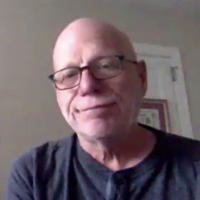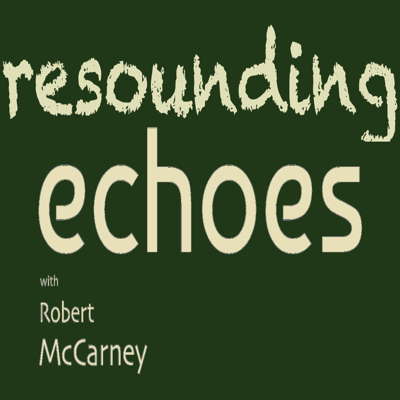 DISCUSSION: What is a work? John Dante Prevedini leads a discussion about The performing artist as co-creator, including contributions from Halida Dinova, Yekaterina Lebedeva, Béla Hartmann, David Arditti and Stephen Francis Vasta.
DISCUSSION: What is a work? John Dante Prevedini leads a discussion about The performing artist as co-creator, including contributions from Halida Dinova, Yekaterina Lebedeva, Béla Hartmann, David Arditti and Stephen Francis Vasta.
Crafting a Musical Life

ONA JARMALAVIČIŪTĖ talks to
Austrian composer Eva Reiter
Eva Reiter (born 1976) is a strong personality in today's Austrian world of music. She studied recorder and viola da gamba at the University of Music and Performing Arts in Vienna and at the Sweelinck Conservatory in Amsterdam. She currently performs regularly as a soloist as well as with various baroque orchestras and ensembles for contemporary music. Since 2015 she has been a regular member of Ictus. Her compositions have been awarded numerous national and international prizes. She appears regularly at renowned festivals for early and contemporary music.
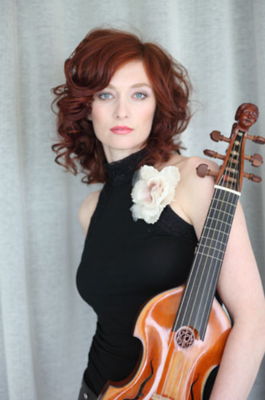
Eva Reiter
Ona Jarmalavičiūtė: It's obvious that music has accompanied you from an early age. How did you decide to become a performer, a composer?
Eva Reiter: I don't feel like I've really made that decision. Rather, it was simply a natural thing for me to follow this path. Since my early childhood, I've had a certain affinity to art in general, particularly music and the presentation of musical ideas and 'works of art'. For a long time, I'd seen my professional future anchored mainly in the fine arts, but ultimately I settled for music. I have always been driven by an urge to express and realize my artistic 'ideas'.
OJ: Which experiences have the greatest impact on you as a musician?
ER: There have been a few acoustic 'aha' experiences that have put me into a euphoric state of intoxication and significantly influenced me, you might say. These include the performance of Purcell Fantasies for Gamba Consort during my years of study, my work with the Wandelweiser Collective, my involvement with Fausto Romitelli's music, especially An Index of Metalls, and my work on his solo piece Seascape, etc.
OJ: You have studied two different old instruments. What influence have your professors - Paul Leenhouts, Walter van Hauwe and Mieneke van der Velden - had on you as a musician?
ER: My instrumental teachers have mainly helped me reach a peak in instrumental technique and have given me access to different repertoires and their scientific contexts. Walter van Hauwe, who was my mentor during my Masters years, happily encouraged me to bring my compositional studies, which at the time were still quite concealed, to the public and to devote myself more and more to this work. I owe a great deal to his competence and openness.
OJ: How was your creative work influenced by the viola da gamba and recorder studies?
ER: The close relationship with each instrument, which I took for granted from my work as an interpreter, should also be reflected in my compositional work. As a recorder player and gambist, I was familiar with the basic techniques of a wind and a string instrument at an early age, and this knowledge proved to be very helpful in working with other instruments. At the beginning of each piece there is - among many other general ideas - the improvisational exploration of the existing instruments. For me, this experimental stage has become very important as a first step towards discovery and material production.
OJ: I assume one of the main tendencies of your creation is the attempt to harmonize old and contemporary musical traditions. How do you integrate contemporary and early music into your career? Do you view them as opposites? Or do they have similarities and are they compatible within the same creative project?
ER: During my musical development and through my dual identity as an interpreter and composer, there have evolved several aesthetic perspectives from which I try to view the world and reflect artistically. My first contact with music therefore took place in the field of Renaissance and Baroque music, long before I came into touch with New Music. It was the polyphonic sound language of Thomas Tallis, John Dowland, Henry Purcell, William Byrd, but also Orlando di Lasso, Ludwig Senfl, Johann Hermann Schein etc, and later Claudio Monteverdi, Georg Friedrich Telemann, Johann Sebastian Bach, Marin Marais, Arcangelo Corelli, Antonio Vivaldi etc, that have shaped my fundamental understanding of music. The unique style and musical aesthetics of this time, especially in the field of musical rhetoric and detailed articulation, have had a profound influence on me, and the many years of musical practice in this field have strongly impacted my approach to vocal forms, articulation as well as gestures of affect in my contemporary compositions.
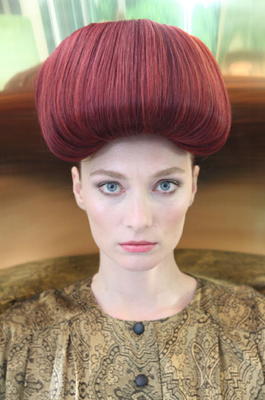
Eva Reiter
OJ: What do you like most about music as a form of art?
ER: The transience. The relationship between music and time (historical time, experienced time, perceptible flow of time). The open spaces in dealing with scores. Music as a physical gesture, as haptic logic and presence. The absorption of music has to do with complex physiological processes. The study of notes and their translation into haptic logics usually happens along vehemently effective zones of resistance.
OJ: In your opinion, what is the most important thing for the success of a new piece of music?
ER: The term success is tricky. Of course, we all want to be heard, answered and respected, but I don't want to satisfy the masses. Even a scathing review can be a sign of success. It's all about facing the fundamentally important questions and having the courage to bring your own visions and utopias uncompromisingly to the stage. A composition is relevant and positive for me when, on the one hand, I have become richer in experience and, on the other hand, I have been able to awaken a new, continuing fascination in myself, which understands what has already manifested as a basis for continuation and renewal.
OJ: How do you normally reach a compositional decision?
ER: I follow a musical logic that has already established itself and is beginning to distance itself from my musical intentions. It is important not to forget that composing means working on the acoustic material and recognizing the reception attitudes inherent in that material. It encompasses the understanding of hearing as a multi-layered phenomenon and the recognition of one's own preconditions and attitudes. By this I also mean the comprehension and questioning of one's own perspective, one's own expectation and the demand placed on what is to be heard.
OJ: What is the main source of inspiration in your life? How personal is your music? Does it come from personal or biographical experiences?
ER: Political, social issues. Ideological, philosophical approaches. Insights into alternative scenarios. Books, films ... visionaries, Utopia.
OJ: How do you usually form new musical ideas? Does it come to you before you start composing?
ER: In the light of the issues that are of utmost concern to me, I suddenly come up with something similar to a utopian fantasy, a musical vision. After that there is no escaping, I have to help it to come to fruition, in any way whatsoever. The idea can have something to do with the ensemble for which I am writing. It can be a musical structural idea, it can involve the setting, the place of performance, the auditory scene, etc.
OJ: How does the idea change during the composition process?
ER: Starting from a 'sparkling' idea, I develop new thought provoking systems that explore yet undiscovered contexts. During the composition process, I follow what I believe to be the inherent tendencies of the material towards self-renewal and musically track down spaces that, on the basis of an already familiar yet 'current' musical language, invite one to take on completely foreign perspectives for a few moments. After that, the idea is to abandon my concepts to a certain extent in order to be open for those processes that begin to emerge on the edge of my perception.
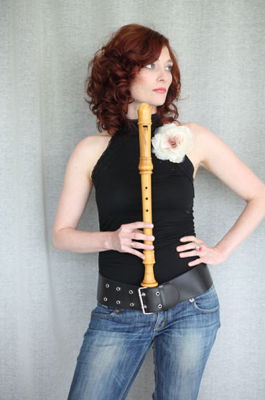
Eva Reiter
OJ: How can you describe your composition process? In which phases could you organize it? Is the process sequential and consistent?
ER: Each piece begins with a captivating idea, an obsession. I am moved, imbued, possessed by it. I read, research, learn, inform myself often for months on a certain topic. What's moreover, the actual composing is preceded by extensive acoustic and structural research on the instruments, in which I subsequently try to fathom musical attractions on a mostly still very abstract level and to connect meaningful contexts. This often results in complex systems, which are then tested and edited in the actual writing process, until they develop a certain life of their own that can steer me mentally into new paths. With the recognition of one's own bias and desires and the related own (and collective) limits begins the work on one's own immense resistances. The whole construct seems completely meaningless and unpromising. At this point the process of composition touches the very foundations of my being and my personal constitution. Here slumbers the core potential of renewal, here begins the work of change.
OJ: What does sketching music mean to you? What influence does it have on the final result?
ER: There exist sketches on different levels. I very often make drawings and plans when it comes to line-up (set-up), positioning, movement in space, choreographic and performative issues. I also make numerous audio recordings of acoustic research on the instrument, which function similarly to sketches and can also be discarded. I make sketches of notations, test the developmental capacity of signs on paper when they are reinvented or re-conceptualized. In some situations it is important to test the inner conceptions of sound, the musical vision in 'probing situations'. Then I check my idea for stability. In some (less frequent) cases, however, it is also better not to get to the bottom of things, but to be surprised by the interpretation of the musicians.
OJ: Is the constructive origin important for your creative process? How do you shape the constructive ideas?
ER: A musical thinking in forms and orders can be formulated as an essential engine of my work in recent years. Starting from a compositional idea, I develop concepts and systems that remain the starting point and, in most cases, the reference point of my reflections. The musical intuition works in me as a corrective to purely mental concepts. It lets me make certain decisions on the basis of a musical instinct, which I can only grasp in my mind in retrospect. My concepts thus develop a certain life of their own that cannot be calculated. They become an instrument on which I can test and experiment. When I compose, there is a great inertia, a great resistance, a blackout with almost every piece at a certain point in time. The further development of the piece is extremely difficult for me at that point. I seem to reach the limits of my cognitive capacity here and then rely more and more blindly on my intuition. In retrospect, however, those phases also reveal the birth of some new tendencies in my work.
OJ: Thank you very much for your time!
Copyright © 1 July 2019
Ona Jarmalavičiūtė,
Vienna, Austria



